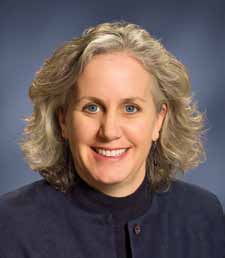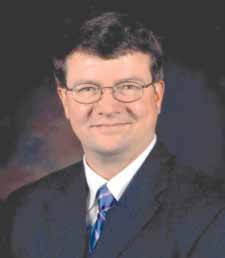September 2015 • Volume 103 • Number 9 • Page 20
Thank you for viewing this Illinois Bar Journal article. Please join the ISBA to access all of our IBJ articles and archives.
Practice of Law
The ABCs of LLLTs
Limited license legal technicians - "triple L Ts" - make legal representation available to people who couldn't otherwise afford it, proponents say. But critics argue they'll compete with already underemployed lawyers and lower the quality of legal services.
They're not lawyers, nor do they play them on TV, nor in court, nor in other more complex scenarios. But unlike paralegals, they can give legal advice and handle more basic, cut-and-dried matters independent of an attorney's supervision.
Limited license legal technicians, touted by supporters as the nurse practitioners of the legal profession, have been licensed for the first time in Washington state, where the initial handful of LLLTs recently completed the joint community college-law school educational track. Several other states, including Florida, Oregon, and Colorado, are at various stages of exploring the issue, while the Illinois State Bar Association has appointed a task force that will begin exploring LLLTs this fall.
Proponents of Washington state's move, mandated in 2012 by the state's supreme court, say LLLTs could help provide legal services to moderate- and middle-income people who can't afford to pay for attorneys but are not poor enough to qualify for legal aid services - hence the comparison to nurse practitioners and how they play a mid-level-provider role in the medical profession.
Opponents, who were very vocal at last summer's ISBA assembly meeting, are concerned that already underemployed lawyers will lose business to LLLTs and also that the quality of legal services provided will suffer. They would prefer to explore other alternatives for making legal services more affordable, and the ISBA task force will take up some of those ideas as well.
'Culture of innovation' in Washington

As in Illinois, the idea did not initially receive a warm reception in Washington, says Paula Littlewood, executive director of the Washington State Bar Association (WSBA). "I think it's sufficient to say that the bar opposed the proposed rule pretty vigorously," she says.
But since its supreme court nevertheless moved forward, "I would say the whole tenor in Washington has changed. People are approaching us with ideas on how to use LLLTs. It's become a culture of innovation." Littlewood adds the caveat that "with 37,000 members, there are still some people who aren't happy about it."
The No. 1 complaint in Washington? "It's what we heard in Illinois: You're taking work away from lawyers," she says. "Our response is, if lawyers were doing this work, we wouldn't be having this conversation." She cites figures that 80 percent of moderate income families - those earning an average of $94,000 for a family of four - go without legal representation.
"I think, as a profession, we have a duty and an obligation to provide services to our public," says Steve Crossland, a sole practitioner in Cashmere, WA, former WSBA president, and chair of the LLLT board in the state. "We have to be creative and innovative and thoughtful about how to serve and protect the public."
It's worth noting that the WSBA, unlike the ISBA, is a "unified" or mandatory state bar association. The ISBA is a voluntary professional society whose principal mission is to serve its lawyer members. The WSBA not only serves lawyers but regulates and disciplines them. The latter roles are played in Illinois by the state's Attorney Registration and Disciplinary Commission. The WSBA also has a mandate to serve "the public" - the consumers of legal services. That difference in focus may color the response of each organization to the LLLT concept.
Littlewood draws the analogy to the medical profession and nurse practitioners. "There was a time when only a doctor could draw your blood," she says. "Not every legal problem needs a lawyer. As the regulator, you have to discern what are the things that need to be maintained by somebody with a lawyer's training." She adds that while LLLTs do not have to work under a lawyer, "You have to train and educate them," which includes 3,000 hours of supervised work under a licensed attorney.
LLLTs can give legal advice but cannot represent clients in court, nor can they handle "other more complicated things, where the consequences could be more dire" if they got beyond their scope, Crossland says. Knowing precisely where to draw the line was challenging due to the lack of models, owing to Washington being the first state to take this step.
"We said to the court, 'We don't know if we got this completely right,'" he says. "There was no model to look to in Illinois or Michigan or wherever. We could come back with changes where these [limits] were too liberal, or not liberal enough. We could come back and recommend that they [be able to make] some minimal appearance in court."
Wherever the precise limits are, "the rule requires that when they come to the edge of their license, they have to refer [the case] to a lawyer," Littlewood says. "It's like a nurse practitioner when they come to the edge of their scope of authority."
For that reason, attorneys in Washington have begun to see LLLTs less as competition than as a business opportunity, she says. "LLLTs will be bringing people to lawyers who otherwise wouldn't have approached a lawyer," Littlewood says. "LLLTs will take the little nuggets and push the big nuggets up to the lawyers, the more complex things. People are saying, 'Wait a minute, they're not taking work away from me, they're bringing work to me that wouldn't have come my way in the first place.' "
Initially licensed only for matrimonial law, with other areas to be added over time based on WSBA recommendations and subsequent court approvals, LLLTs will be trained in a specific practice area in a way that lawyers are not, Crossland says. "It has been one-sized-fits all, JDs qualified to do everything, but not anything in a specific way," he says. "[LLLTs] can be qualified and authorized in any number of practice areas. Some might choose to do one, some more than one."
Crossland could see LLLTs working independently, through a law firm, or through a legal services agency - and perhaps the last would provide the most "bang for the buck," he says, but all three business models seem viable to the WSBA.
The initial group of nine prospective LLLTs, seven of whom ultimately passed the required exam, took 15 credits of law school courses twin-taught by professors and practitioners of family law. One professor told Littlewood that the LLLTs "are going to be better trained [in their practice area] than our recently graduated JDs," she says. Crossland adds that bar leaders and the schools involved hashed out questions like, "What courses do we need to teach them so they're qualified to deliver services within their scope?"
The core courses are taught generally over two years at the community college level and have dovetailed with existing paralegal programs, Crossland says. The law school courses, delivered through University of Washington with help from Gonzaga University, have been livestreamed throughout the state to help make the educational program viable for those outside the state's main metropolitan areas of Seattle and Spokane.
Community colleges have seen the LLLT program as a new career opportunity for their students, Littlewood says, and the students apparently agree, with more than 100 currently enrolled in the "four or five" colleges participating and classes all carrying waitlists. "The collaborations between community colleges and law schools are pretty exciting," she says, adding: "We say to other states: come on in, the water's fine."
Skepticism in Illinois

But judging from the arm's length reaction of some at the ISBA Assembly meeting where Littlewood presented, not everyone in Illinois appears ready to take the plunge. Tamika Walker, associate in family law at Sreenan & Cain in Rockford and secretary of the ISBA's family law section council, spoke up bluntly at the meeting and talked again later by phone.
"My impression when they were presenting to the assembly is that many people felt similarly to me," she says, "especially about the fact that LLLTs wouldn't have to work under a licensed attorney.
Walker would prefer that the ISBA continue to explore ways to reduce the cost of law school, so that newly minted lawyers have less debt and can potentially charge less. "Let's work on having more lawyers who are able to provide low-cost legal services," she says. "We're undermining our profession by pushing [the LLLT] idea. I don't think that everyone goes to law school for the money, but we get into a substantial amount of debt to provide quality legal services."
While she's certainly sympathetic to the need for quality legal representation at an affordable rate, Walker notes that suburban and especially downstate attorneys don't necessarily charge Chicago prices. "There are many, many, many lawyers who set their fees according to what their community can afford," she says. "I'm in Rockford, so I'm not going to set my rate at $400 per hour."
Plus, she adds, there's no guarantee that LLLTs will cost significantly less for consumers. "I don't know that this is going to solve the problem of affordability of legal services," Walker says. "I think we're doing our profession a disservice by telling people you should get a lawyer - or by the way, you can take the discount route with these LLLTs. If you want a lawyer, you should hire a lawyer."
Walker expressed doubts about the quality of services from those who receive an associate's degree and 15 credits of law school training. "They're trying to say this is like a nurse practitioner, but a nurse practitioner has a bachelor's degree," she says, adding that she's not sure to what extent nurse practitioners truly work independently. "I am by no means knocking the two-year education, but I don't think someone with an associate's degree can do what a lawyer can do."
Plus, Walker wonders, how smoothly would it work for legal consumers to start with an LLLT and then have to be handed off to a lawyer at a certain point? LLLTs "can only go so far with you. And then what? You still have to bring in a lawyer to litigate the case," she says. "[Lawyers are] going to come in in the fourth quarter, in the last 10 minutes of the game?" That's ineffective legal practice that won't serve consumers well, she says.
Specific to family law, Walker points out that the Washington state presenters cited entering into negotiations as a boundary an LLLT could not cross. "That's what family lawyers do all day," she says. "So I'm not sure what [an LLLT] is going to do."
Walker has heard proponents of the LLLT arrangement tout the potential to fill geographic gaps in rural areas that don't have enough legal representation. "That's an issue of recruitment and retention," she says. She wonders why LLLTs would be more likely than lawyers to choose a rural area.
As the ISBA explores the LLLT concept, along with other possible ways to reduce legal costs and improve services, Walker hopes that the task force will be mindful of the issues she raises. "The information gathering is good," she says. But she wants the ISBA to investigate the concept thoroughly and critically.
ISBA's task force

ISBA task force chair Tim Moran, property tax attorney at Chicago-based Schmidt, Salzman & Moran, assures Walker and others that the LLLT concept and other ideas on reducing legal costs and expanding services will receive a full airing. The 16-member task force, comprised of attorneys from diverse geographic and practice backgrounds, is likely to begin meeting in September.
"I suspect we're not the first bar association to tackle this problem, but we may be the first to do it in such depth," he says. The goal is "to come up with…recommendations that can be implemented, maybe by supreme court rule, maybe by legislation, maybe by reallocation of budgetary items within the state bar association."
The two main questions the task force will explore, Moran says, are whether a segment of the community is unable to obtain legal representation for economic reasons - he suspects the answer will be an easy "yes" - and how the ISBA can best address that issue.
"The LLLT concept is certainly out there," he says. "At the assembly meeting you certainly saw, to put it mildly, a lot of skepticism about that idea. Part of the argument from the Washington State Bar Association seems to be that there are not attorneys out there willing or able to represent people of limited economic means." Moran's committee will test that theory and also try to determine whether LLLTs are in fact less expensive for consumers than licensed attorneys.
While it's probably a given that some people have difficulty finding competent and affordable representation, Moran says, that "certainly does not lead to the conclusion, necessarily, that was presented to us by the Washington State Bar Association. What other alternatives are out there? What can we recommend to the bar association to help address this need? What you'll see in the makeup of the task force is a lot of experience and a lot of diversity in terms of our backgrounds."
Moran expects the task force to consider several possibilities, some of which have been raised in the past. For one thing, there is the ongoing ISBA exploration of how to reduce law school costs that Walker references. Secondly, Moran wonders whether the bar might support an advertising campaign to ensure that people who are eligible for legal aid, whether through public agencies, law schools, or legal aid societies, can more dependably find it.
Another option that Moran thinks the task force will consider, not least because it's high on the agenda of newly installed ISBA President Umberto Davi, is expanding the Illinois 711 license - which enables second- and third-year law students to represent public agencies - to private law firms.
"That possibility addresses two issues," Moran says. Certainly it helps those who need low-cost legal services, he said. "But it also may open up the possibility of law students…being better able to obtain jobs out there after they graduate. Certainly that [entry level] market is tight."
He adds, "Anything that gives young lawyers the opportunity to file administrative pleadings or step before a circuit court judge with the responsibility of the client behind them, or be supervised by a licensed, experienced, competent attorney" hastens their professional development, he said.
Whatever happens, Moran says he and others will be mindful of both the need for access to justice and the concerns expressed at the June ISBA Assembly meeting as they move forward. "My intent is to come in with an open mind," he says.

Ed Finkel is an Evanston-based freelance writer.


Member Comments (1)
Missing in the discussion are two very significant points:
1. A lawyers accumulated knowledge and experience in a given practice area is not discussed or considered. Just as nurse practitioners can not do "open heart surgery", so too, nothing but a lawyer who practices in a given area and does go to court and perhaps appeals a question here and there has INSTANT KNOWLEDGE that is invaluable and can be obtained from various sources.
2. There is no mention of technology! Just look at the competition from non-lawyer entities, like Legal ZOOM and others that provide similar digital documents that explain what a given problem like a contemplated divorce is all about and then let a consumer fill in a questionnaire and then, for a fee charged to a consumer's credit card, generate and provide THE legal documents for the party requesting same. There is no doubt in my mind that LegalZOOM engages in the Unauthorized Practice of Law ("UPL") but that is another matter. If the ISBA would focus on the use of technology, like LegalZOOM, ISBA members would have not only similar resources, but the benefit of legal discussion groups hosted by the ISBA and with lawyers expert in and interested in all the legal areas of expertise that are needed.
I had a potential client call me to do a simple will .... and I told them that in the hour it would take me to get the information I needed to even start to talk about issues, that they could get a darn good will on LegalZOOM and the cost of that one item would be substantially less then my charging for the first hour at customary hourly rates.
There is no deed for lengthy discussions and task forces. I had that experience with the CBA many, many years ago and in about 1984 as head of the task force, put together a summary of our discussions and specific recommendations as to what the Bar Association could do, ought to do and must do, to provide members of that bar association what they need to adopt and use technology in their law practices. I strongly urged and recommended immediate attention to that report, and guess what happened? The report was referred to another committee for further review! And guess what happened then? NOTHING. 25 years later...... yes TWENTY-FIVE YEARS later, similar approaches as recommended previously, began, in part, to be implemented.
We lawyers better wake up! Solos and smaller law firms are especially vulnerable to competition from the likes of LegalZOOM, but we should not be so threatened..... it is up to us to act and, frankly, the leadership of all bar associations had best talk to lawyers who love and use technology but need more help in doing so, to dig into these matters now, before it is too late, which it may already be.... that is, too late.
Paul Bernstein
Member of the Illinois State Bar Association
since 1959.